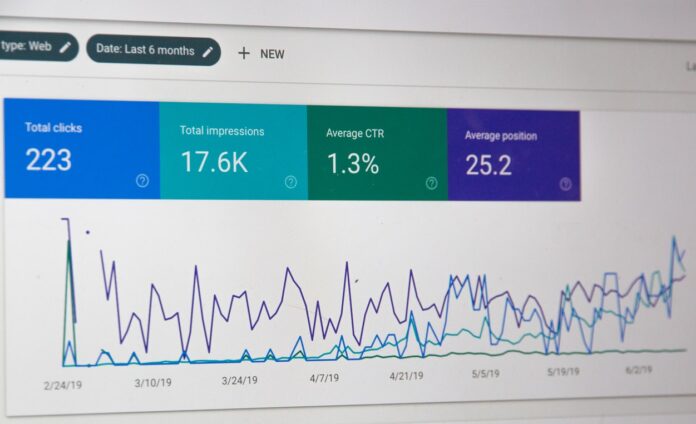
Table of Contents
Have you ever had difficulty understanding the difference between SEO and PPC? The two practices are very closely related, and so it makes sense that people sometimes confuse them. Both are very important when it comes to digital marketing, so it is worth understanding them so that you can use them efficiently.
Lots of businesses nowadays use both SEO and PPC as a core part of their marketing strategies. This is down to the fact that so many more consumers primarily shop online – and if they don’t shop online, the majority of consumers research a product or service online before they purchase. Businesses such as TechQuarters, an IT support provider, rely on SEO and PPC to connect with their ideal customers online. So, if you’d like to do the same, keep reading for a better understanding of the two practices.
Search Engines, Search Terms, and Keywords

Firstly, it’s worth covering a few definitions and background information. SEO and PPC both come down to search engines.
We all know about search engines – Google, Bing, and Yahoo are examples. Most people online use search engines to find any kind of information, and that is the key to SEO and PPC. Both practices are designed to make it more likely for people to find a specific brand or website when they use a search engine.
The way you use a search engine is by entering a search term into the system – a search term could be anything from “IT support” to “where can I get my bicycle repaired in south London”.
The engine then looks through its vast database, which contains billions of websites/webpages, and other content that it has logged. It compares all the content in its database with the search term you entered, figures out which content is most relevant, and then presents them to you, ranging from most to least relevant.
Search engines use keywords to judge which content is relevant to any given search term. For instance, if you searched for IT support in London – the keywords would be IT support and London. Any content on the internet that contains those two keywords would be ranked as relevant and would show up in the results.
Search engines have gotten more and more sophisticated over the years, and so they have many different ways of judging how relevant a piece of content is – this means it is able to make the results it shows you much more accurate.
Search Engine Optimization (SEO)

So, now that we have covered the basics of search engines, we can get into talking about Search Engine Optimization – colloquially known as SEO.
SEO is a practice brands use, which takes advantage of the way search engines work (as described above) to make their content appear above other content in the results for specific search terms. So, a brand that makes children’s toys might use SEO, so that when users type in search terms like “handmade toys” or “best toys for toddlers”, they will see the brand’s website. This can be applied to any type of business, and any keywords.
How does SEO work?
Basically, SEO is all about creating content that is favored by search engines. This is done in a number of ways:
- Keyword Research – brands usually research what types of keywords their audiences are searching for. Keywords that have high search volumes (i.e. lots of people searching those keywords per month) are generally favorable because it means more people are likely to find your content containing the keyword. Keywords that have low-search volume, but which are more specific can be useful because the people searching those keywords are more likely to be ideal customers for a brand.
- High-Quality Content – once you know which keywords your audiences are using, you need to create content that targets those keywords. If you imagine that those keywords are questions, your content needs to be the answer – and search engines always favor the most complete answer. This means it’s important to put effort into your content; make sure that it is easy to read/understand, and has lots of useful information in it.
- Optimize Content for the Algorithm – the algorithm is basically the set of rules that search engines use to judge how relevant a piece of content is. The rules vary – for example, there might be a rule saying that videos with subtitles are preferred; or perhaps webpages that have meta-descriptions are ranked higher than webpages without.
Organic Rankings

There are many more ways in which you need to optimize content for a search engine, and so SEO usually requires a lot of time and effort to be successful. But when done successfully, your content will be ranked highly in the organic rankings.
Organic, in this context, means results that appear under results because the search engine favors them. A high-ranking organic result will include relevant keywords, be high-quality, and be optimized for the search engine. This is the ultimate goal of SEO, and the advantage is that users will trust organic results the most – so if your content ranks both highly and organically, your brand will be considered trustworthy.
Pay-Per-Click (PPC)

Now, let’s talk about the other practice – PPC. If SEO is about making content rank highly in an organic way, PPC is about making content rank highly in an inorganic way.
PPC stands for pay-per-click. So, it is essentially a form of paid advertising on search engines. A brand can pay for a piece of its content to be displayed at the top of a page of research for specific search terms. Every time a user clicks on the advert, the brand will be charged an amount of money – this is often referred to as the cost-per-click (or CPC).
How does PPC work?
PPC has a few different factors that determine how much it costs – these factors include (but are not limited to) Keyword Bids, Quality Score, and Competition.
- Keyword Bids – with PPC, your bid (i.e. you state how much you are willing to pay) to have your ad appear under the results for specific keywords. If you want to guarantee your ad appears as the top result, you will need to bid higher. Depending on how popular the keyword you are targeting is, you might end up paying your maximum bid for the top place – if it isn’t very popular, you might be able to pay less for the top result; and if it is very popular, your maximum bid might not be enough to secure the top place.
- Quality Score – basically, the search engine you paying to advertise on will judge the quality of your ad, and the quality of the keyword you are targeting. Your ad receives a quality score based on how relevant it is to the keyword, and also how well the webpage is optimized (see our previous explanation on how SEO works). If the Quality Score of your ad is very high, you might be able to pay less per click for a higher rank in the results. On the other hand, a low-Quality Score will drive up the cost-per-click.
- Competition – you won’t be the only person who wants to put paid adverts under certain keyword results. These are your competitor, and they will all be placing keyword bids and working to improve the quality score of their ads just like you are – this competition results in an increase in demand, and therefore an increase in the cost-per-click.
There are many more factors that determine how much PPC will cost your brand. But if you perform PPC advertising in a strategic way, you will begin to see an increase in visitors to your website in a shorter time frame when compared with SEO. This is the primary advantage of PPC that distinguishes it from SEO, and it is also why PPC and SEO are both worth performing – doing them both will give you the best impact.
















